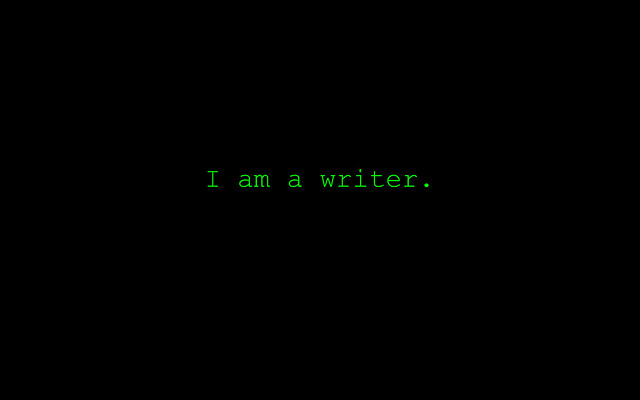
“Don’t be a writer. Be writing.”
(William Faulkner)
When I was younger, I didn’t think about what it meant to be a writer. I just wrote. Somewhere along the way I lost that clarity of purpose, and I’m not the only one who learned to doubt their creative efforts. As a writing coach, I hear stories through my clients and through the research I do to stay current in my field about discouragement, directly and indirectly, sometimes from society, sometimes from people close to them, or sometimes even from themselves. Now, when our time seems so much more precious and limited, it’s more important than ever to think about why we do what we do, and what it means to us.
What does it mean to be a writer? I scoured Pinterest for wise words from those with more experience than I. I’ve included here the ones that most struck home for me but, before we leap into that collective pool of wisdom, I’d like to emphasize that writing is a very personal thing: no one can truly know what it means for you except you. If you’re struggling to justify your writing time, let these words wash over you and then take a walk; do some journaling; talk to a trusted friend; reread some of your favourite pieces. Be gentle with yourself and, whatever else you do, do not judge a single thought that enters your mind.
“As a writer you should not judge. You should understand.”
(Ernest Hemingway)
Writing allows us the opportunity to view things from multiple perspectives, entertaining views we might never consider if they were in our own voice, our own lives. It’s a powerful way to move through and past times of intense emotion without crumpling into pieces. On the flip side, it’s a good way to see where you might be missing something, perhaps where we’ve judged something or someone wrongly. Greater understanding of the people and situations around us can only make life better.
“A writer never has a vacation. For a writer life consists of either writing or thinking about writing.”
(Eugene Ionesco)
Oh, how true it is! Some of the time, at least. There are times where you can’t concentrate on what’s right in front of you (good or bad) over the clamour of your thoughts. Everything that happens to us feeds our writing in some way or another. However, it is possible to be mindful of the present moment and live it without thought to your current work-in-progress. I love how Tammy Vanella puts it: “Being a writer doesn’t mean I’m better or wiser than anyone else. It means I’m tuned in to the heartbeats of life and taking copious notes.” Most writers love writing, and we’re happy to spend many of our waking hours doing it or thinking about it.
“I write to give myself strength. I write to be the characters that I am not. I write to explore all the things I’m afraid of.”
(Joss Whedon)
As writers, we must be fearless. This is sometimes a far cry from how we feel in reality and so, just as an actor slips on a second skin for a performance, we embody a world of emotions and motivations sometimes unfamiliar to us but no less connected to the human experience. Writing has a way of showing gaps in your everyday reality, pointing out where you could be more, do more. It also lends a quiet strength, making you feel you could leap mountains if only you were a few inches taller. Sometimes this is for the sake of the story but, sometimes, depending what you’re writing, it empowers you to create change and manifest dreams in your own life, as well.
“You pick the smallest manageable part of the big thing, and you work off the resonance.”
(Richard Price)
Everything matters. The tiniest detail can change the course of a scene, a story. The clues in mystery novels are one obvious example of this; other books, such as Maggie Stiefvater’s Shiver trilogy, achieve their magic through the depiction of little moments in the characters’ lives that add up to an abundant whole. As writers, we see the importance of the great and the puny. Nothing goes unnoticed. Nothing is without merit.
I could go on for pages and pages about what it means to be a writer, how it means filing away tidbits of juicy conversation and learning about things like the reproduction system of rats at 2 AM. What it ultimately comes down to for me is a sense of connection: connection with the little moments and the overarching truths; with your deepest self and the universe; with the page right in front of you and the reader a thousand miles away. Writing, even if your only reader is you, is one of the greatest gifts you can give to the world, because it shapes the way you see it.
How about you, GenTwenty readers? What does it mean to you to be a writer?
